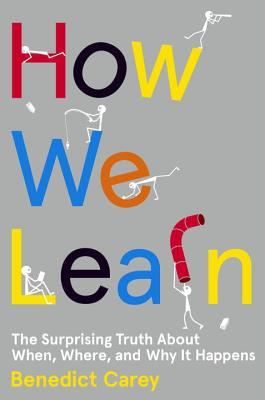| Date Read: May 12, 2021 Final Score: 7 / 10 ! | This is another book I picked up for Class and it's a fantastic start-point for anyone interested in the finer points of psycho-social neurology. It addresses the physical aspects of how the brain functions, the psychological elements of how it processes information, and the social influences that nudge both of the above to work effectively. A lot of what my current research is focused on is not just the hyper-academic psychology journals or neuro-medical experiments, it's on what is accessible to the average, open public. Because the Ivory Tower of academia is like the number 1 thing that modern society is absolutely bonkers about (seriously, the WHOLE POINT of the development of libraries and public education was to make learning accessible and incentivized for the sum total of the entire population... locking shit behind paywalls that even big institutions can barely afford is just asinine). This is one of the best, ease your way in sorts of overviews that I've found. A key factor of that is in how it's accurate science and not full of gimmicky give yourself an edge lies on how to be the smartest person ever. It touches on the neurology, cites plenty of legitimate and historic studies in both medical neurology and psychology, and explains the conclusions in down to earth, easy to understand language that is congenial while still being accurate. |
The other great thing it mentions is called Interleaving, which I don't think Carey spent nearly enough time on. While paywalls are the biggest thing that America and upper level academia is doing wrong, the idea of disciplinary studies is the thing that education as a concept is doing wrong. Subjects are not separate. They only ever developed into separate departments because they had to argue for funding from school boards and when a department got funding, it was spent at the discretion of the department head. If the Dean of Science decided that music was lame, even though music was definitively considered a hard science for most of history, all the Science money was spent elsewhere (like alchemy or astrology...), so Music petitioned to be considered an entirely separate discipline with its own discretionary budget and such.
I may have to write up a Culture Crit essay on the topic, because the manner in which we teach 'subjects' in school is just something that makes me want to claw people's eyes out. In short, if you're not teaching music with your math and history with your science and poetry with your politics, you're doing everyone in the universe a lasting disservice. Anyway, I really liked how Carey addressed the fact that true learning, not just memorizing for the test, is learning how to manipulate the variable rather than how to achieve an end result. It's a principle that works in math just as well as in sports, and that idea is addressed by Carey quite well.
I also liked Carey's quote of the Henk Arts Group at Leiden University regarding their study on perception motivations with Bisaldrops (ie, if you're thirsty and stuck in a room, you notice things that relate to water / liquids more easily and remember them better than if you were locked in the same room while not thirsty). They address the idea of motivation directly and excessively affecting the ability of the brain to perceive the factors of its environment and how the idea of the "body's basic needs" includes the things needed by the mind.(There's probably another Culture Crit piece in there about Mazlo's Pyramid of Needs being outdated bullshit, but that's a rant for another day.)
In short, I liked this book. It's a good survey of the scientific state of learning psychology and a great toe-dipping start point with accessible, accurate prose.
I definitely recommend it for anyone even a little curious about how our brains actually manage to work their magic!

 RSS Feed
RSS Feed
